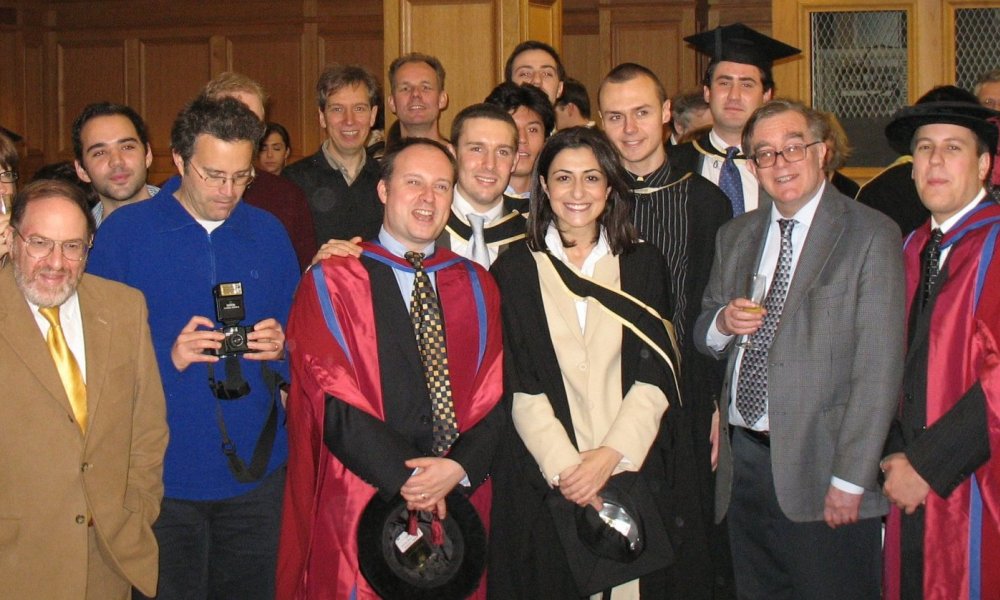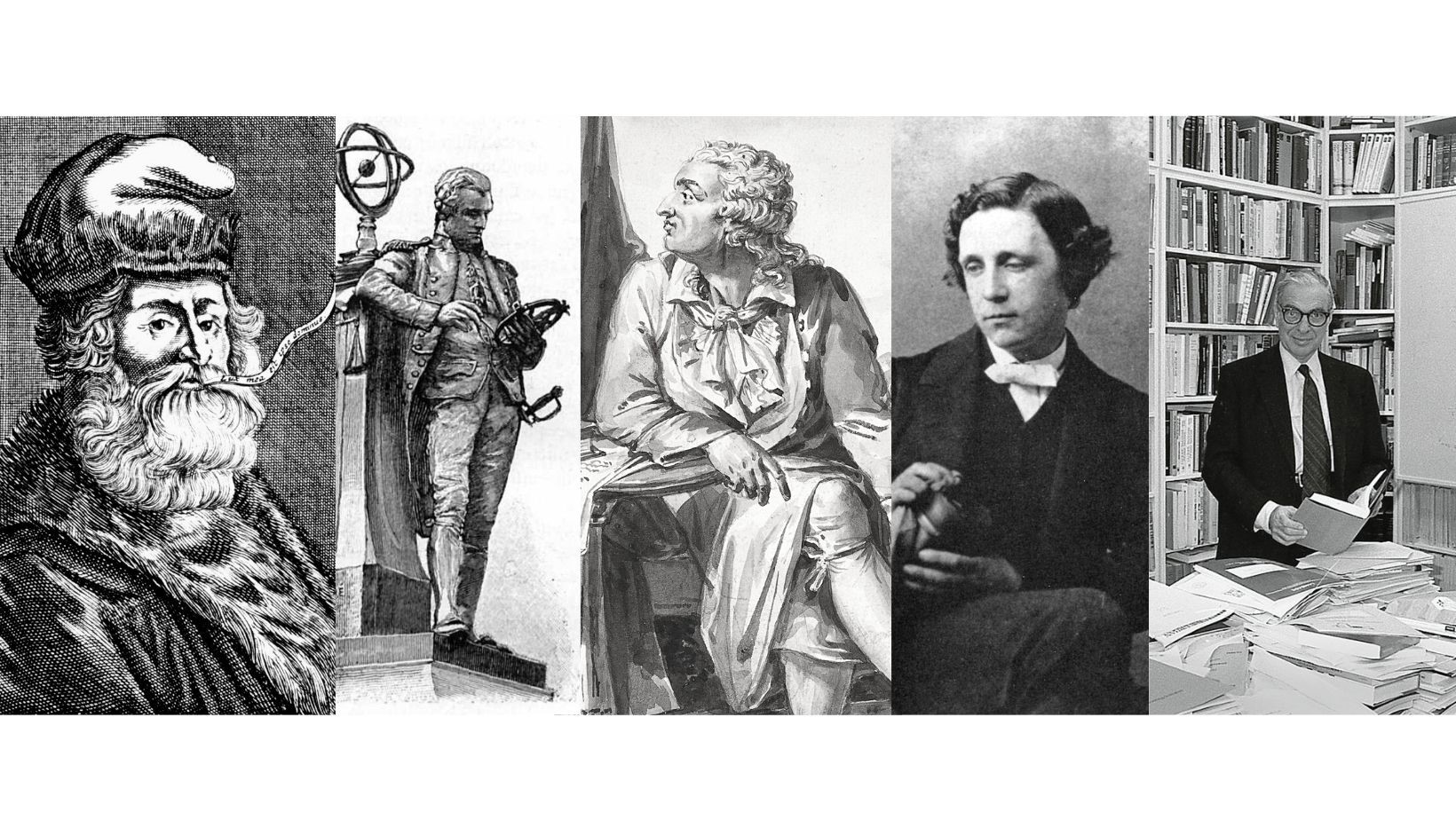In a new mini-series, Norman Biggs gives us a brief history of mathematics at LSE. Norman is an Emeritus Professor in the Department of Mathematics at LSE and is also on Twitter: @norman_biggs
At the start of the academic year 1988-89 the Sub-Department of Mathematics had 6½ members. In addition to the newly-appointed professor, Norman Biggs, there were three long-standing members: Elizabeth Boardman (appointed in 1971), Adam Ostaszewski (1976) and Steve Alpern (1979). Haya Freedman had retired in the summer of 1988, and the vacancy had been filled by a temporary lecturer, Nick Gilbert. John Bell was still in post, but he had been offered a chair at the University of Western Ontario, and was planning to leave in 1989. The half-post was a position shared with the Operational Research sub-department, held by David Connolly. There was a commitment to replace Freedman and Bell permanently, and this duly resulted in the appointment of Graham Brightwell (1989) and Martin Anthony (1990).
The incoming professor knew little about the LSE, and thought he ought to find out more. A circular letter to other departments about their mathematical needs and activities brought forth a mixed response, but it led to several useful insights. For example, it transpired that some members of the Economics Department were highly mathematical, although they tended to regard us simply as a resource for teaching those parts of mathematics that were deemed useful in economics. It was clear that the goodwill of this powerful department ought to be nurtured. The Department of Accounting and Finance reported that their current hot topic was ‘Black-Scholes Theory’, at that time largely unknown in mathematical circles.
In order to provide a focus for research activity, an obvious first step was to set up a regular weekly research seminar. The title ‘Discrete and Applicable Mathematics’ seemed appropriate, and it was easy to find speakers. The question of listeners was more problematic, but the members of the sub-department were willing, and there were several others working in and around London who attended regularly. The LSE had intellectual objections to the provision of a free lunch but, after some negotiation, free coffee was provided and generally the attendance was good.
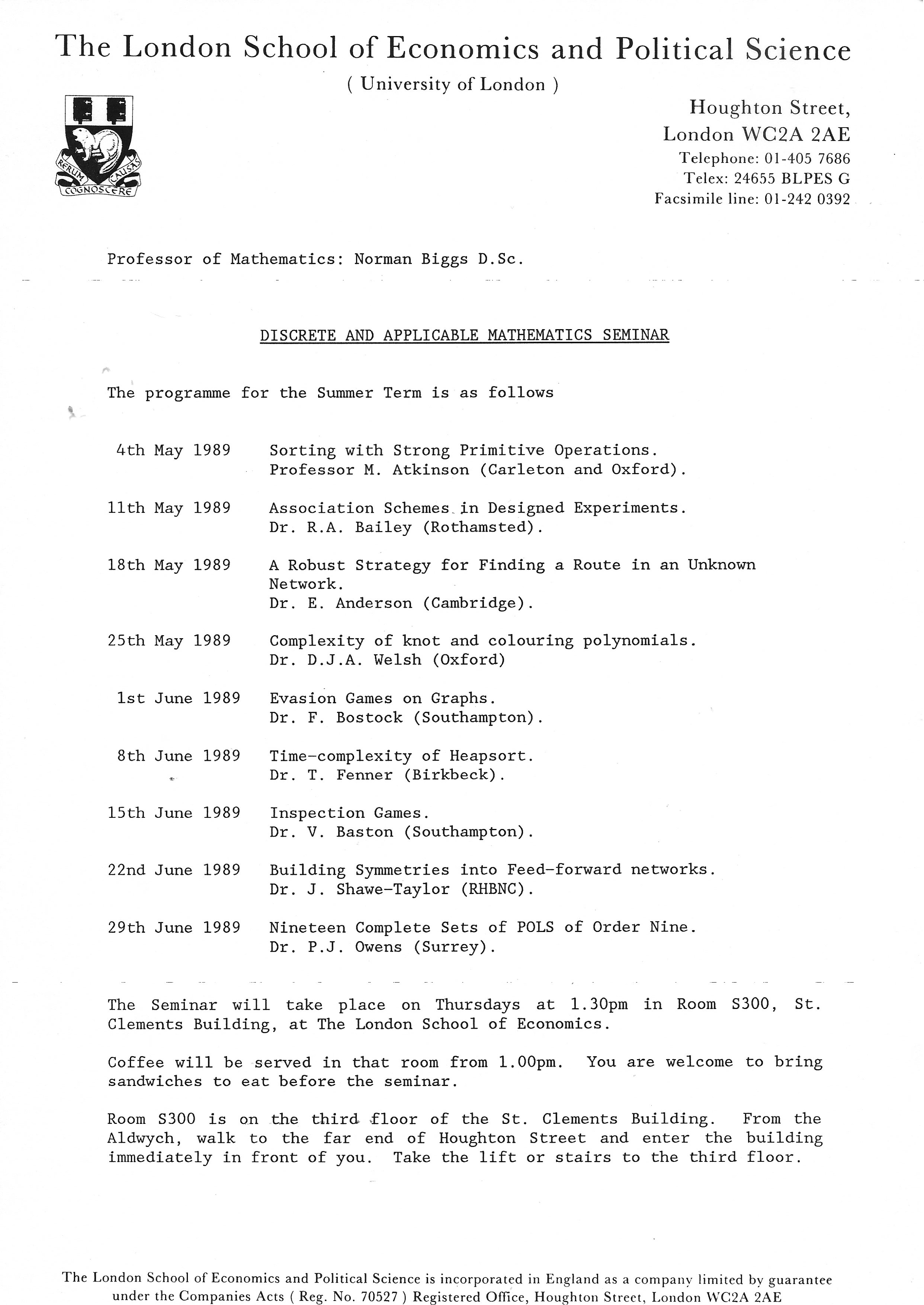
A diversion in 1989 was a national Research Selectivity Exercise. Not much was expected from the LSE mathematicians in their transitional state, and fortunately (at that time) the results of such exercises were treated with healthy scepticism. The Director (I.G. Patel) and Pro-Director (David Bartholomew) both took an enlightened view, which was reassuring. Nevertheless there were some clear lessons to be learned. First, it was essential that the group should pull its weight fully in research, and be seen to do so by whatever crazy criteria might be adopted in future. Second, there was a disparity between the kind of mathematics that LSE was minded to support and the traditional stereotypes of ‘Pure’ and ‘Applied’ that pervaded mathematics in the UK. The mathematicians were buried in the Department of Statistical and Mathematical Sciences, which was far too diverse to fit into that picture: indeed, at least half of its members had little use for serious mathematics of any kind.
On the teaching side, the arrival of a new professor prompted a review of the courses offered to undergraduates. The sub-department was involved with two ‘specialist’ programmes: the degree in Mathematics which been set up back in the 1960’s, and the option in Mathematics and Economics which was part of the old BSc (Econ). It was strange that we played no part in selecting or advising students taking the Mathematics and Economics option, and possibly that was the reason why the numbers graduating in this subject were surprisingly small – only 12 in 1990. The numbers for the Mathematics degree were also quite small, and a large part of the staff-student ratio was attributable to several courses in ‘Mathematical Methods’, which were attended by students taking degrees in economics and accountancy. It was necessary to move forward carefully, in order to expand the curriculum in mathematics without damaging the service teaching which justified the resources allocated to us. Dr Michele Harvey had been a part-time teacher at the LSE since 1979, and in 1989 she was joined by Dr Joan Davies. Together they developed the main Mathematical Methods course into a coherent and highly successful operation, which did much to enhance our reputation as an essential part of the LSE. In due course we were allowed to reward Drs Harvey and Davies with proper contracts, and the title of Instructor. Consequently we were able to re-structure gradually the courses in specialist mathematics. At the start of the 1990-91 session a booklet was produced, with the grandiose title ‘Mathematics at LSE: education for the next century’. We managed to present a well-established programme of teaching, even if the foundations were not quite as firm as they appeared.
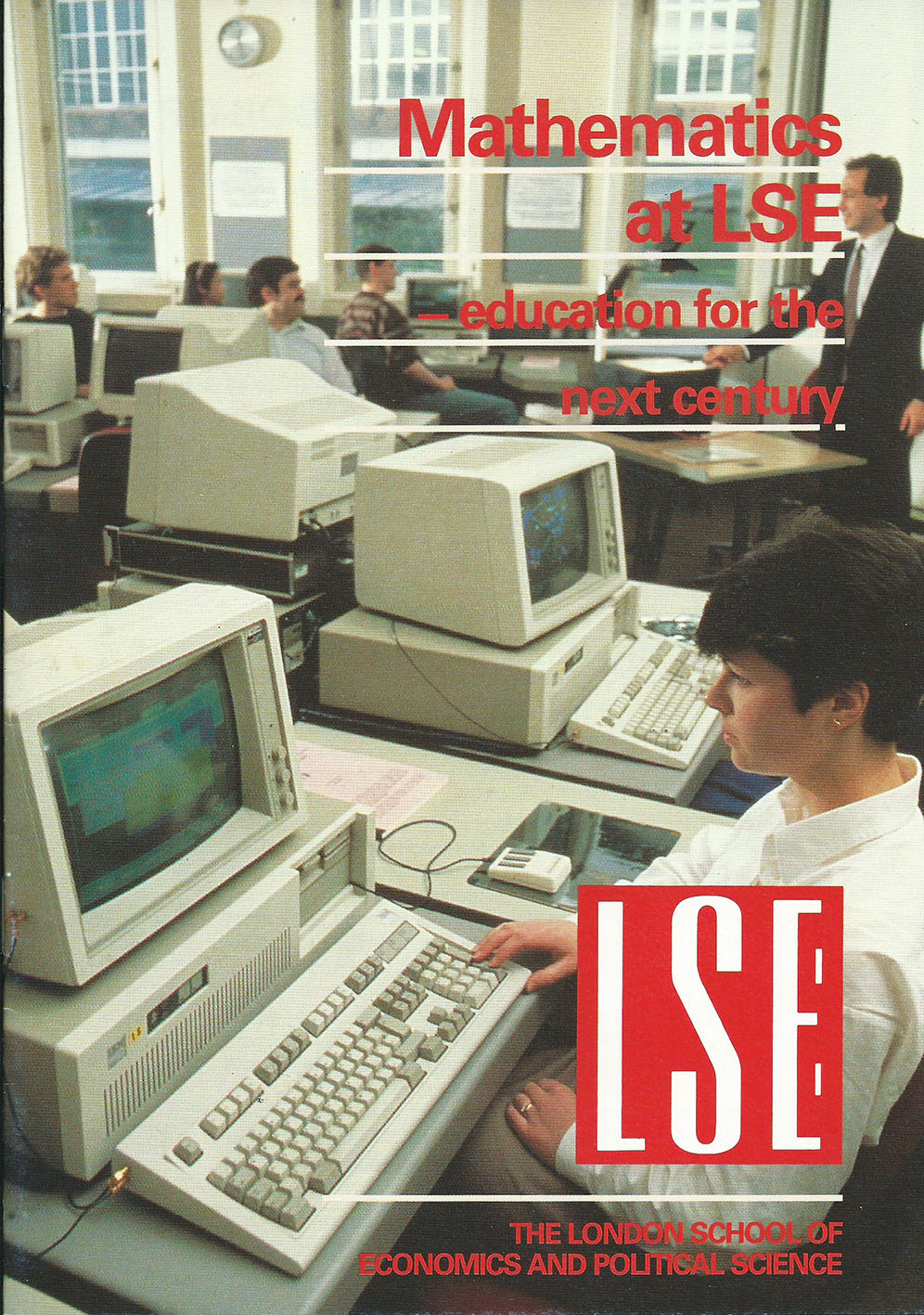
1990 also saw the arrival of a new Director, John Ashworth, which led to the usual increase in navel-gazing activity. Review Groups were established to look at the LSE’s approach to Research, Teaching, Organisation, and Finance. Norman Biggs found himself on one of them (Teaching) where an outcome favourable to mathematics was possible. The negative influence of the old BSc (Econ) degree structure has already been mentioned. Over the years the original vision had been obscured by numerous changes in the regulations, and it was now the proverbial dog’s breakfast. In fact, the degree title was being awarded to many students who had never taken a course in economics. It was therefore a relief when it emerged that almost all the members of the Teaching Review Group thought that the BSc (Econ) should be abolished and replaced by degrees in specific subjects.
On the research front, steps were being taken to find a niche for mathematics in the LSE context. The weekly seminar in Discrete and Applicable Mathematics was well-established, and research activity was encouraged by the publication of a series of Research Reports. These included work by visitors and members of other LSE departments, as well as the core mathematics group. These visible signs of activity helped to raise the profile of mathematics in the School.
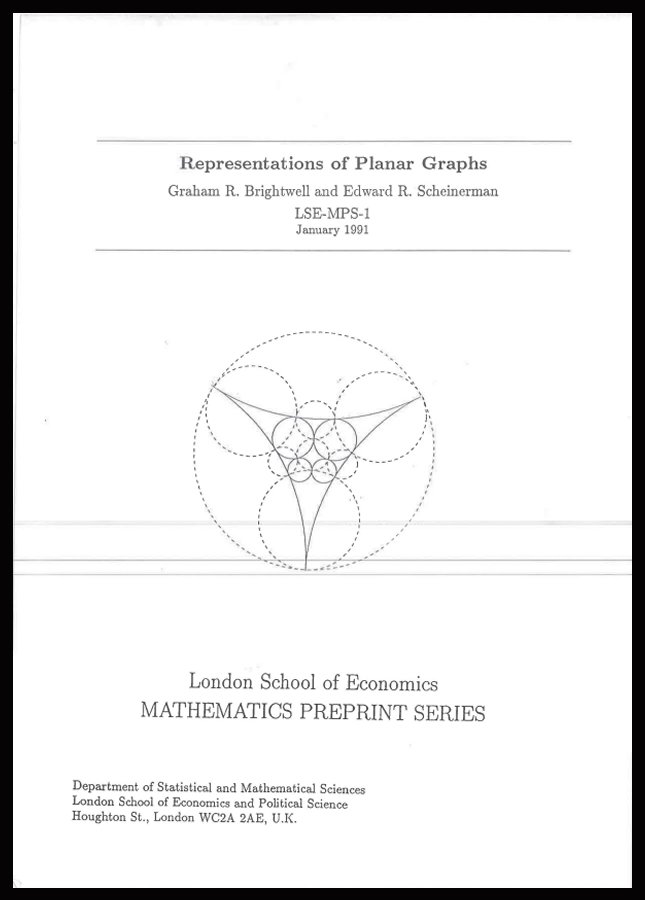
The joint position with Operational Research fell vacant in 1992, and we were pleased to appoint Bruce Shepherd, whose mathematical interests fitted in well with those of the existing staff. Also in 1992, there was another attempt by the government to assess the research activities of universities. It was becoming clear that these events would be a regular feature, and that the LSE would have to take them seriously. The situation of Mathematics at the LSE was not likely to allow us to attain the highest grades, so the future was uncertain. We therefore decided to propose the establishment of a proper Department of Mathematics and, after some delicate negotiations, this was agreed. The new Department of Mathematics came into being at the start of the 1994-95 session. Steve Alpern had been promoted to a personal chair, and he was the convener. At this time Norman Biggs was serving temporarily in the LSE hierarchy, which provided a useful insight into the School’s curious modes of governance.
At the start of the 1995-96 session we welcomed the first intake to the new degree in Mathematics and Economics, which had replaced the old option in the BSc (Econ). We now had sole responsibility for this degree, which allowed us to introduce a slightly broader mathematical curriculum, although many areas of mathematics were still not covered. Jointly with the Statistics Department we were also involved with a new degree in Business Mathematics and Statistics. The teaching programme was going well, and some members of the department even found time to publish textbooks, such as the one below.
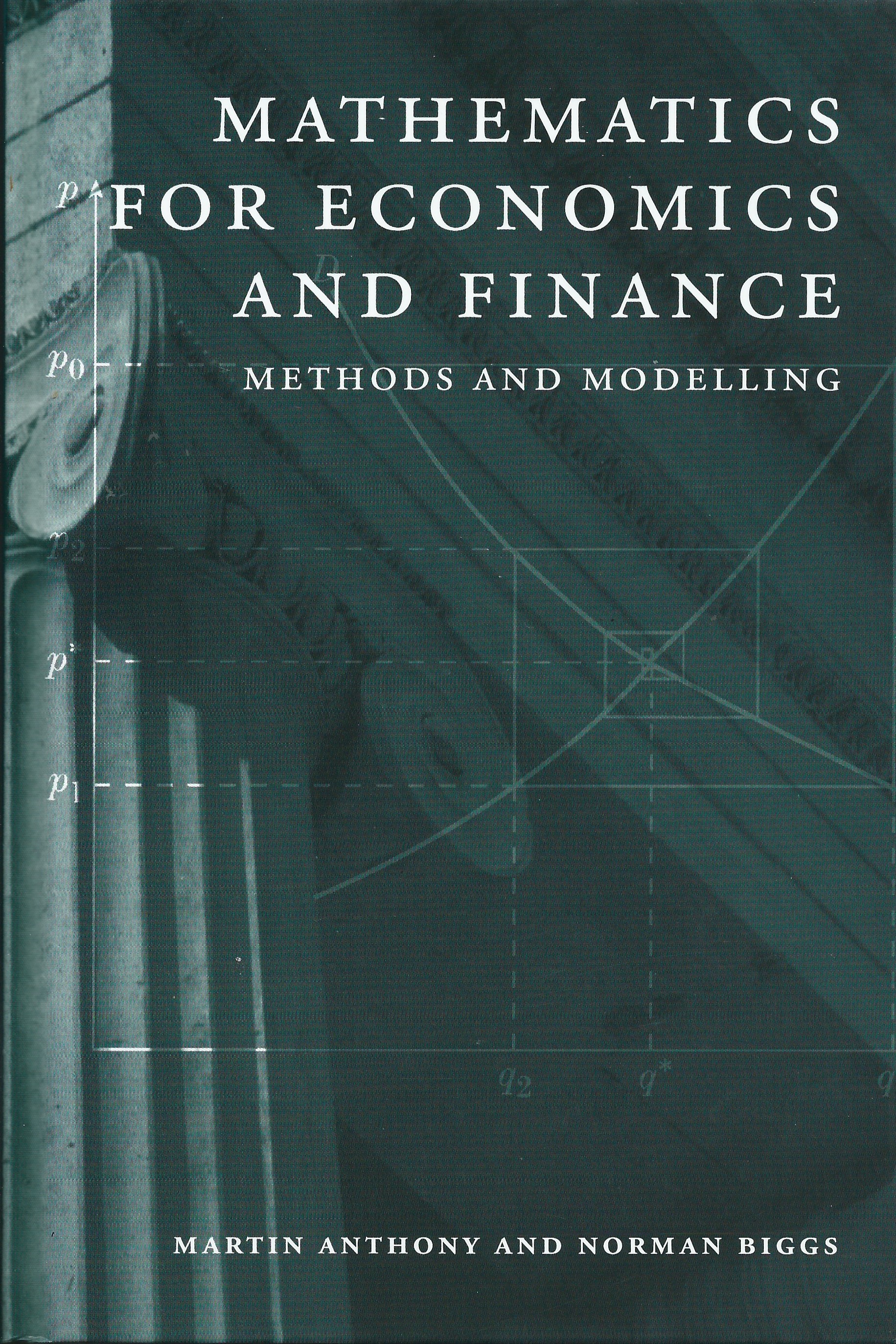
On the research side, a Centre for Discrete and Applicable Mathematics was set up. This was intended to be an umbrella for mathematical activity throughout the LSE, not just within the Department. Graham Brightwell was convener for the sessions 1995-96 and 1996-97, and despite his administrative responsibilities he maintained an outstanding research programme, resulting in the award of a personal chair in 1998. Elizabeth Boardman retired in 1995 and the advertisement for a new lecturer produced a remarkably strong field of applicants, given the small size of the department. Jan van den Heuvel was appointed, starting in January 1996.
The degree in Mathematics and Economics attracted an increasing number of highly-qualified applicants, and this provided a good basis for our attempts to appoint additional staff. The first step took place in 1997, when Bruce Shepherd left to take up a position at Bell Laboratories in the USA. We were able to replace him with a full post in Mathematics, and again the field of applicants was impressive. Bernhard von Stengel was appointed, joining in September 1998.
As the 1998-99 session approached, the department was in a healthy state, but by no means flourishing. New accommodation in Columbia House had been provided, and the teaching and research activity was beginning to resemble that provided by Mathematics Departments in other universities. But there were challenges ahead, because the government had decided to continue its efforts to assess the ‘quality’ of research in universities – and to apply the same methodology to teaching. Another uncertainty was that the LSE had appointed a new director, a sociologist with little knowledge of mathematics, so the future would be interesting.

